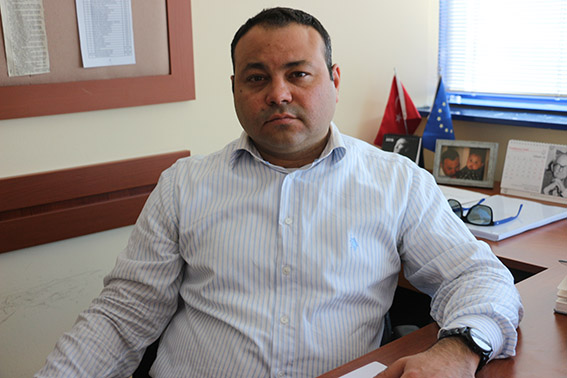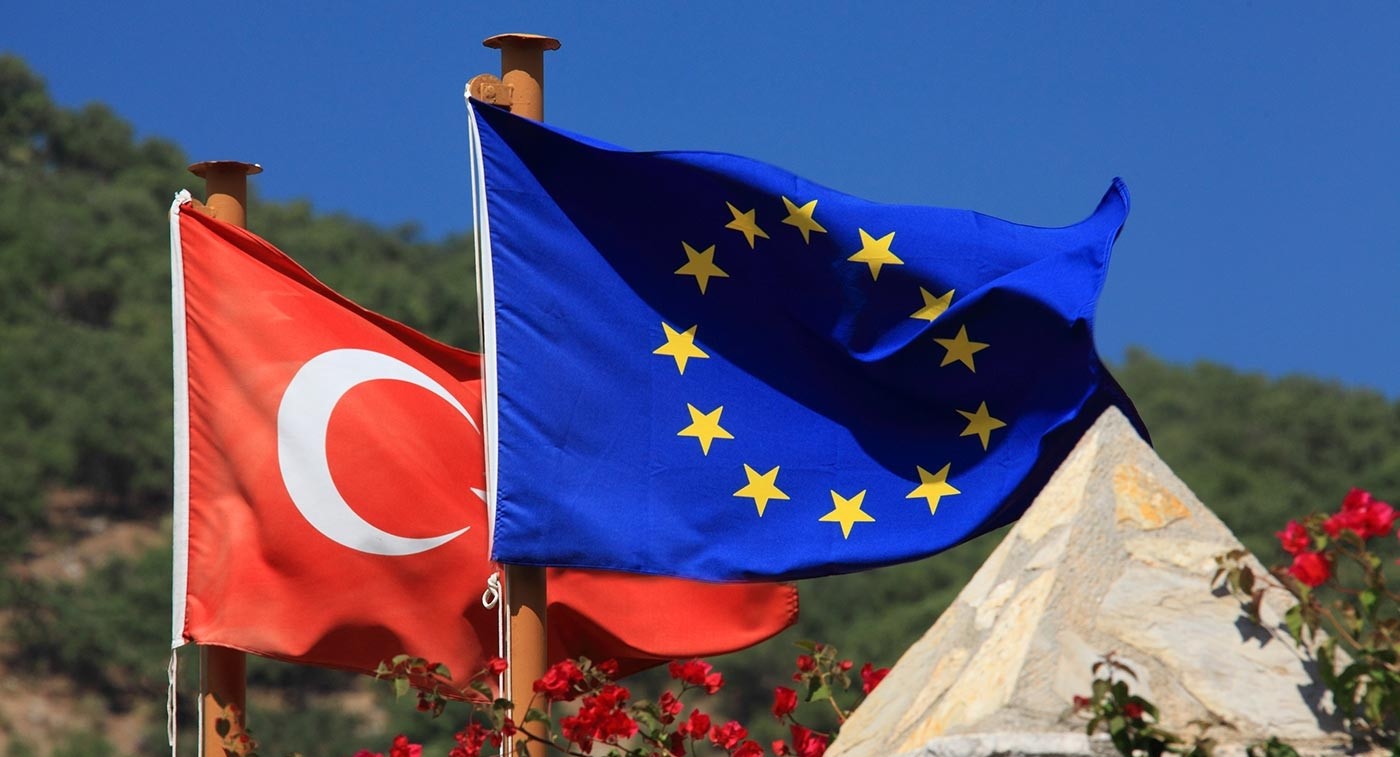SELAHATTİN MURATHAN YILDIRIM
REZZAN AÇIKGÖZ
Turkey has been an active member of the western alliance such as NATO. In this regard, shortly after its creation in 1958, Turkey began its partnership with the European Economic Community in 31, July 1959 during the Democratic Party period, led by Prime Minister Adnan Menderes.
From the Council of Ministers, accepting the conditions of accession of the application, made Turkey a proposal to sign a partnership agreement will be valid until the liquidation. The Convention was signed on 12 September 1963 and entered into force on 1 December 1964. The Ankara Agreement forms the basis of the European Union's relations with Turkey. The objective of the agreement referred to in article 2 of the Ankara Treaty: "the rapid development of the Turkish economy and of the Turkish people, taking into account the need to ensure the improvement of the level of working and living conditions, to strengthen relations and trade between the parties in a continuous and balanced manner to encourage them".
The ultimate goal of the EEC-Turkey partnership is Turkey's full membership
The Ankara Agreement, Article 28 regulates the accession of Turkey: "The operation of the agreement, when the treaty establishing the community obligations of the whole show that Turkey could be undertaken, the Contracting Parties consider the possibility of Turkey's accession to the Community". In this article, it is clear that "the ultimate goal of the EEC-Turkey partnership relations is Turkey's full membership of the Community. Ankara Agreement, the period leading up to Turkey's accession to the ECE integration, transition period and provides for three circuits, including the last period. The first period began on the first of December, 1964, the date of entry into force of the agreement. to reduce the economic differences between the defined in the present period of the preparatory period, "Turkey assume no obligation. Some institutions have been formed between the two parties for the functioning of the partnership relationship. Of these, the highest decision-making body is the Association Council. Everything moves according to its schedule, a signature of additional protocol...
With the Additional Protocol signed on 13 November 1970 and entered into force in 1973, the preparatory period provided for in the Ankara agreement was completed and the conditions for the "transitional period" were established. During this period, it was planned to ensure the free movement of industrial products, agricultural products, and persons and to complement the Customs Union. Since 1971, the Additional Protocol, the Community has been cleared of certain non-petroleum textile products and applied to all industrial products imported from Turkey's customs duties and quantitative restrictions unilaterally. On the other hand, Turkey should gradually restore tariffs on EU industrial products and the Customs Union is so important for a period of 22 years for effective entry into force. Relations between the EU and Turkey, from the beginning of 1970 until the second half of the years 1980, were followed by a shocking trend for political and economic reasons.
The reports were formally suspended after the military coup of 12 September 1980. We are engaged in the path of the European Union: request for full membership...
In 1983, the restoration of civil service in Turkey from 1984 and the rapid abandonment of Turkish import substitution policies, Turkey began the process of opening up to the outside world. From September 12, 1980. This is how the process of reviving the jellies in relations between Turkey and the EEC began. Turkey, 14 April 1987, pending the end of the period provided for by the Ankara agreement, accession was submitted.
The Commission explained its opinion on that request on 18 December 1989 and stated that the community could accept a new member only at the end of its internal integration. In addition, in Turkey, although the right to participate in the community, economic development is to note that social and political areas. It was therefore proposed that no date be set for the opening of accession negotiations and the development of relations within the framework of the Association Agreement. The proposal, which was also positively assessed by Turkey and the Customs Union, began preparations for completion in 1995, as provided for in the Additional Protocol. At the end of two years of negotiations held on 5 March 1995, in accordance with the decision taken at a meeting of the Association Council between the Customs Union of the European Union and Turkey, it entered into force on 1 January 1996. Customs Union is one of the most important steps of the partnership for the objective of integration with the European Union and relations between Turkey and the European Union have taken another dimension.
Now, the candidate country, Turkey...
A cornerstone of EU-Turkey relations is 10-11 December 1999, the Heads of State and Government at the EU Summit took place in Helsinki. The candidacy of Turkey at the Helsinki Summit was officially approved on an equal footing with the other candidate countries have expressed clear and precise language.
As a sum up in Helsinki, as well as for the other candidate countries Participation Partnership for Turkey was decided to prepare the document. The first Accession Partnership for Turkey was prepared and approved by the EU Council on March 8, 2001. The National Program, which includes the program and timetable for implementing Accession Partnership priorities, was approved by the government on March 19, 2001, and filed with the European Commission on March 26, 2001.
The Accession Partnership Document was revised by the European Union in 2003, 2005, 2006 and 2008.
The national program was updated in 2003, 2005 and 2008. The political will, which has been resolved joining the European Union at every opportunity, has also accelerated reform efforts. Thus, the sets of compliance laws to meet the political criteria, which are a precondition for the opening of negotiations, have been widely transmitted to the Assembly. Reforms that reinforce and guarantee existing regulations in areas such as democracy, the rule of law, freedom of thought, freedom of expression and human rights have been pursued in order to broaden the scope of fundamental rights and freedoms. In this framework, 8 compliance packages were adopted between 2002 and 2004 and 2 constitutional packages were adopted in Parliament in 2001 and 2004.
December 17, 2004, at the Brussels Summit, and was considered a turning point in the relations and criteria of the EU-Turkey Turkey Political Summit decided to start negotiations on October 3, 2005, which declares satisfied the criteria were sufficient.
Negotiations begin...
October 3, 2005, in Turkey with the Intergovernmental Conference in Luxembourg officially began its accession negotiations to the EU. The negotiating framework was still published at a press conference organized for the same day Turkey. Thus, the bumpy relations between Turkey and the EU, surpassing a crucial turning point has entered a whole new. To date, 16 chapters have been opened for accession negotiations, one of which is provisionally closed.
Listening to Dr. Erhan Akdemir, a lecturer at Anadolu University, talked about the history of EU- Turkey relations. Akdemir said, “The first name of the European Union was the European Economic Community. Turkey was admitted to the European Economic Community, 31 July 1959. Greece had applied 2 weeks earlier than Turkey. The main process after this application was the Ankara Agreement on 12 September 1963. In this agreement, Turkey had the legal basis of agreements. If we are able to talk about becoming a member of the European Union today, the main reason for this is the Ankara Agreement. The Ankara Agreement is a three-stage process that includes preparation, transition and result periods. Our current process is the process of results.

When does this process end?
This process results in Turkey after becoming a member of the European Union. The decision of the partnership council, which came into force on 1 January 1996, was adopted. Thus it was formed the Customs Union since January 1, 1996, between Turkey and the European Union. When we look at the 1970s, there are many troubling processes, especially the Cyprus issue. The oil crisis can also be added to them as a global problem. It was on 12 September 1980 military coup in Turkey. After this coup, the relations between Turkey and the European Union has not experienced an improvement until 1986.” Dr. Akdemir adds: “In 1983, after the inauguration of the civilian government in Turkey, it started mobility in relations between the two sides. Turkey, on 14 April 1987, applied to the European Community. This was a full membership application. This is Turkey's expectations after the application was to be a candidate country for the European Union quickly. Turkey has spent all his energy on this issue later in 1987. The beginning of the 1990s was the scene of regional and global developments. Turkey and European Union relations were therefore deeply affected. Luxembourg summit in December 1997 was also important for Turkey. European Union states other states have declared candidate countries other than Turkey. Turkey was left with a really big disappointment from the summit. Turkey suspended all relations with the European Union as a message.
The European Union's most important leaders that night voiced their wish to improve relations with Turkey. Two years later, the Helsinki Summit appeared in a new type of relationship between Turkey and the European Union. Turkey was declared a candidate country. This was very important because Turkey was caught at the net position against the European Union since 1959. Turkey, from 1999 until 2010, lived a really important process of reform programs. About 10 adaptation packages emerged in this process.
Each of these reform packages took Turkey closer to the European Union. For this reason, the European Union's point of view about Turkey has changed. At the meeting in Brussels, it appeared in 2004 decided to start negotiations with Turkey. On the third of October of 2005, negotiations began. 16 out of 35 chapters are currently open. But they haven't closed yet. In this regard, the Cyprus problem comes to the fore. Political and economic demands come to the fore. It has been 14 years since 2005. Looking at the future of EU-Turkey relations, Turkey's reform process is an effective element here. If the reform process has once again between the years 1999-2010, the relations will gain new growth.

%20CORRECI%C3%93N%20FINAL.jpg)



